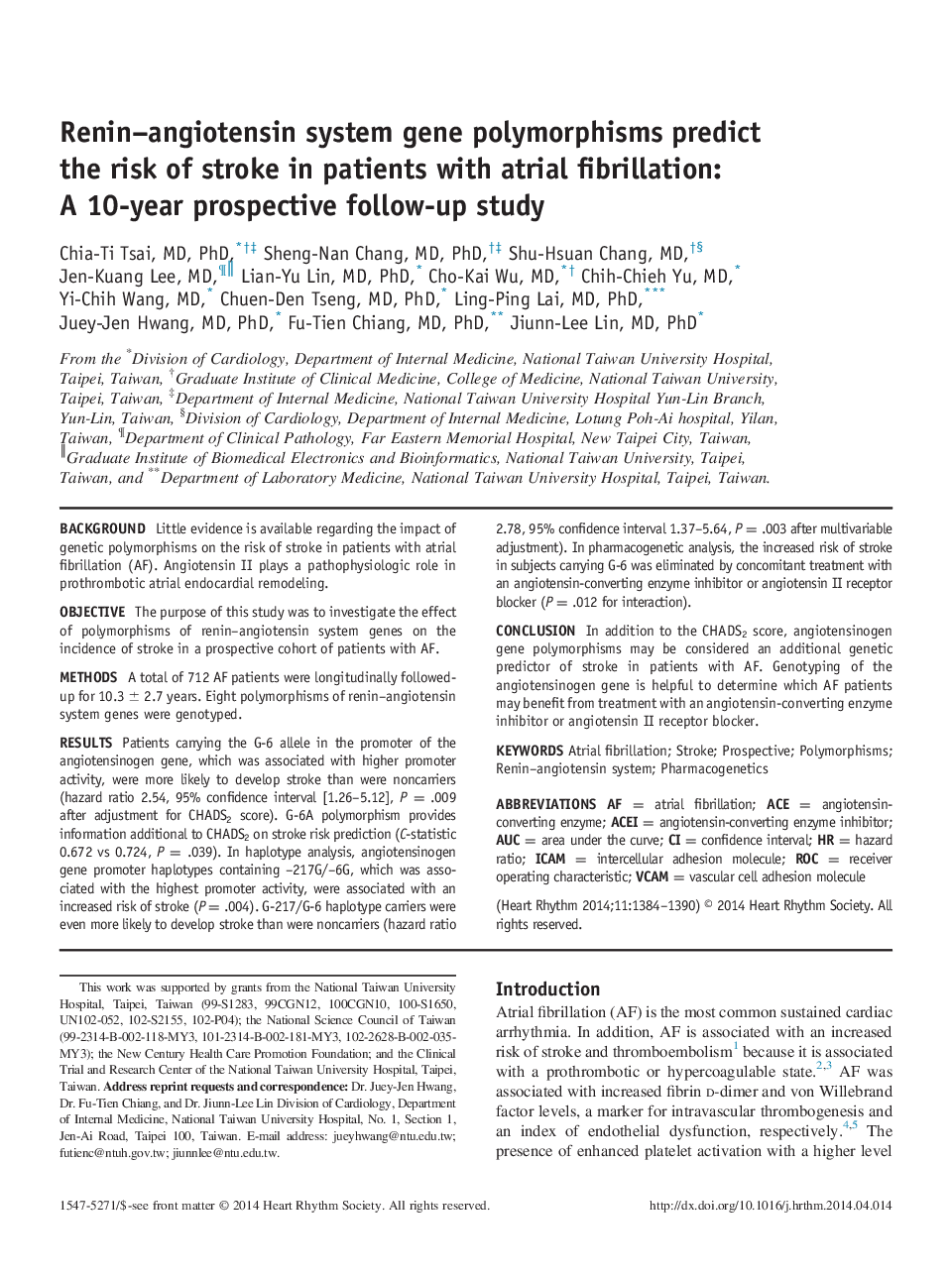| کد مقاله | کد نشریه | سال انتشار | مقاله انگلیسی | نسخه تمام متن |
|---|---|---|---|---|
| 2922030 | 1175827 | 2014 | 7 صفحه PDF | دانلود رایگان |

BackgroundLittle evidence is available regarding the impact of genetic polymorphisms on the risk of stroke in patients with atrial fibrillation (AF). Angiotensin II plays a pathophysiologic role in prothrombotic atrial endocardial remodeling.ObjectiveThe purpose of this study was to investigate the effect of polymorphisms of renin–angiotensin system genes on the incidence of stroke in a prospective cohort of patients with AF.MethodsA total of 712 AF patients were longitudinally followed-up for 10.3 ± 2.7 years. Eight polymorphisms of renin–angiotensin system genes were genotyped.ResultsPatients carrying the G-6 allele in the promoter of the angiotensinogen gene, which was associated with higher promoter activity, were more likely to develop stroke than were noncarriers (hazard ratio 2.54, 95% confidence interval [1.26–5.12], P = .009 after adjustment for CHADS2 score). G-6A polymorphism provides information additional to CHADS2 on stroke risk prediction (C-statistic 0.672 vs 0.724, P = .039). In haplotype analysis, angiotensinogen gene promoter haplotypes containing –217G/–6G, which was associated with the highest promoter activity, were associated with an increased risk of stroke (P = .004). G-217/G-6 haplotype carriers were even more likely to develop stroke than were noncarriers (hazard ratio 2.78, 95% confidence interval 1.37–5.64, P = .003 after multivariable adjustment). In pharmacogenetic analysis, the increased risk of stroke in subjects carrying G-6 was eliminated by concomitant treatment with an angiotensin-converting enzyme inhibitor or angiotensin II receptor blocker (P = .012 for interaction).ConclusionIn addition to the CHADS2 score, angiotensinogen gene polymorphisms may be considered an additional genetic predictor of stroke in patients with AF. Genotyping of the angiotensinogen gene is helpful to determine which AF patients may benefit from treatment with an angiotensin-converting enzyme inhibitor or angiotensin II receptor blocker.
Journal: Heart Rhythm - Volume 11, Issue 8, August 2014, Pages 1384–1390